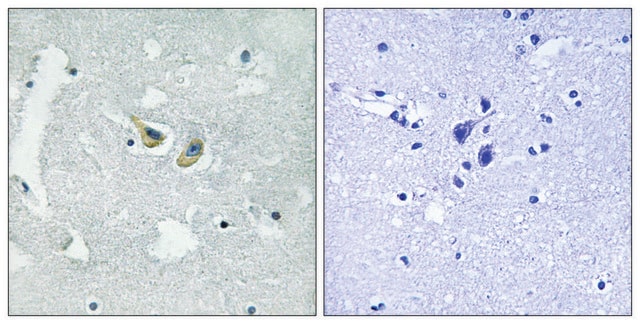HL60 Cell Line human
98070106, human blood, Lymphoblast
Synonym(s):
HL60 Cell Culture
Sign Into View Organizational & Contract Pricing
All Photos(1)
About This Item
UNSPSC Code:
41106514
Recommended Products
product name
HL60 Cell Line human, Caucasian promyelocytic leukemia, 98070106
biological source
human blood
growth mode
Suspension
karyotype
Modal no. 46, pseudodiploid
morphology
Lymphoblast
products
Not specified
receptors
Not specified
technique(s)
cell culture | mammalian: suitable
relevant disease(s)
cancer
shipped in
dry ice
storage temp.
−196°C
Cell Line Origin
Human Caucasian promyelocytic leukaemia
Cell Line Description
The HL-60 cell line was derived from peripheral blood leukocytes obtained by leukopheresis of a 36-year-old Caucasian female with acute promyelocytic leukemia. It was among the first long-term suspension cultures of human myeloid leukaemic cells to be established. Approximately 10% of HL-60 cells spontaneously differentiate and differentiation can be stimulated by polar planar compounds butyrate, hypoxanthine, phorbol myristic acid (PMA, TPA), dimethylsulfoxide (DMSO, 1% to 1.5%), actinomycin D, and retinoic acid.
Application
Differentiation studies
HL60 cell line has been used to study the effect of inecalcitol on the expression of cluster of differentiation 38 (CD38). It has also been used to study the role of autophagy in the cytotoxicity of cytarabine (an anti-leukemic drug).
DNA Profile
STR-PCR Data: Amelogenin: X
CSF1PO: 13,14
D13S317: 8,11
D16S539: 11
D5S818: 12
D7S820: 11,12
THO1: 8
TPOX: 8,11
vWA: 16
CSF1PO: 13,14
D13S317: 8,11
D16S539: 11
D5S818: 12
D7S820: 11,12
THO1: 8
TPOX: 8,11
vWA: 16
Culture Medium
RPMI 1640 + 2mM Glutamine + 10-20% Foetal Bovine Serum (FBS).
Subculture Routine
When starting from a frozen ampoule, add thawed cells to a conical based centrifuge tube e.g. 15ml tube. Slowly add 4 ml of culture medium to the tube. Take a sample of the cell suspension, e.g. 100ul, to count cells. Centrifuge the cell suspension at low speed i.e. 100 - 150 x g for a maximum of 5 mintues. Remove medium and resuspend the cell pellet at a density of 3 - 5 x 100,000 cells/ml in fresh medium containing 20% serum. Incubate flask at 37 C; 5% CO2. Cell growth after resuscitation is slow, it may take up to 10 days for proliferation to be established. Check daily. Once the culture is established the serum concentration can be reduced to 10%. Maintain cultures between 1-9 x 100,000 cells/ml; 5% CO2; 37 C; at low density or they may differentiate. At ECACC it has been found to be difficult to recover cells of acceptable viability after freezing in 10% glycerol/90% FBS. We recommend using 10% DMSO/90% FBS for this purpose, but spinning out the cells at resuscitation as above to remove the DMSO as it can cause cells to differentiate. After 6 weeks in culture cells may differentiate.
Other Notes
Additional freight & handling charges may be applicable for Asia-Pacific shipments. Please check with your local Customer Service representative for more information.
Certificates of Analysis (COA)
Search for Certificates of Analysis (COA) by entering the products Lot/Batch Number. Lot and Batch Numbers can be found on a product’s label following the words ‘Lot’ or ‘Batch’.
Already Own This Product?
Find documentation for the products that you have recently purchased in the Document Library.
Our team of scientists has experience in all areas of research including Life Science, Material Science, Chemical Synthesis, Chromatography, Analytical and many others.
Contact Technical Service







